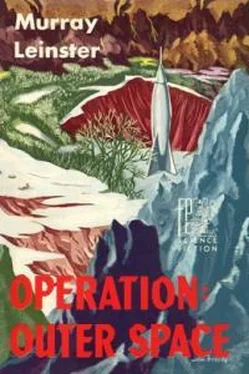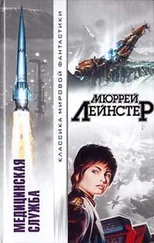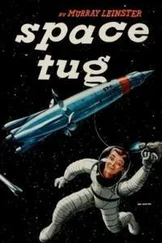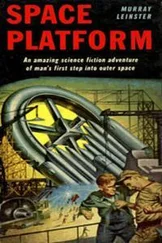Ultimately the crackpot inventor would get on the air and announce triumphantly that only part of his invention had been stolen, because he'd been too smart to write it down or tell anybody, and he wouldn't tell anybody—not even a court—the full details of his invention unless paid twenty–five million in cash down, and royalties afterward. The project for a congressional investigation of Spaceways would die in committee.
But there were other griefs. The useless spaceship hulk had to be emptied of the mining–tools stored in it. This was done by men working in space–suits. Occupational rules required them to exert not more than one–fourth of the effort they would have done if working for themselves. When the ship was empty, air was released in it, and immediately froze to air–snow. So radiant heaters had to be installed and powered to warm up the hull to where an atmosphere could exist in it. Its generators had to be thawed from the metal–ice stage of brittleness and warmed to where they could be run without breaking themselves to bits.
But there were good breaks, too. Presently a former moonship–pilot—grounded to an administrative job on Luna—on his own free time checked over the ship. Jones arranged it. With rocket–motors of adamite—the stuff discovered by pure accident in a steel–mill back on Earth—the propelling apparatus checked out. The fuel–pumps had been taken over in fullness of design from fire–engine pumps on Earth. They were all right. The air–regenerating apparatus had been developed from the aeriating culture–tanks in which antibiotics were grown on Earth. It needed only reseeding with algae—microscopic plants which when supplied with ultraviolet light fed avidly on carbon dioxide and yielded oxygen. The ship was a rather involved combination of essentially simple devices. It could be put back into such workability as it had once possessed with practically no trouble.
It was.
Jones moved into it, with masses of apparatus from the laboratory in the Lunar Apennines. He labored lovingly, fanatically. Like most spectacular discoveries, the Dabney field was basically simple. It was almost idiotically uncomplicated. In theory it was a condition of the space just outside one surface of a sheet of metal. It was like that conduction–layer on the wires of a cross–country power–cable, when electricity is transmitted in the form of high–frequency alterations and travels on the skins of many strands of metal, because high–frequency current simply does not flow inside of wires, but only on their surfaces. The Dabney field formed on the surface—or infinitesimally beyond it—of a metal sheet in which eddy–currents were induced in such–and–such a varying fashion. That was all there was to it.
So Jones made the exterior forward surface of the abandoned spaceship into a generator of the Dabney field. It was not only simple, it was too simple! Having made the bow of the ship into a Dabney field plate, he immediately arranged that he could, at will, make the rear of the ship into another Dabney field plate. The two plates, turned on together, amounted to something that could be contemplated with startled awe, but Jones planned to start off, at least, in a manner exactly like the distress–torp test. The job of wiring up for faster–than–light travel, however, was not much more difficult than wiring a bungalow, when one knew how it should be done.
Two freight–rockets came in, picked up by radar and guided to landings by remote control. The Lunar City beam receiver picked up music aimed up from Earth and duly relayed it to the dust–heaps which were the buildings of the city. The colonists and moon–tourists became familiar with forty–two new tunes dealing with prospective travel to the stars. One work of genius tied in a just–released film–tape drama titled " Child of Hate " to the Lunar operation, and charmed listeners saw and heard the latest youthful tenor gently plead, " Child of Hate, Come to the Stars and Love. " The publicity department responsible for the masterpiece considered itself not far from genius, too.
There was confusion thrice and four and five times confounded. Cochrane came in to dispute furiously with Holden whether it was better to have a psychopathic personality on the space–ship or to have a legal battle in the courts. Cochrane won. Jones arrived, belligerent, to do battle for technical devices which would cost money.
"Look!" said Cochrane harassedly. "I'm not trying to boss you! Don't come to me for authority! If you can make that ship take off I'll be in it, and my neck will be in as much danger as yours. You buy what will keep my neck as safe as possible, along with yours. I'm busy raising money and fighting off crackpots and dodging lawsuits and getting supplies! I've got a job that needs three men anyhow. All I'm hoping is that you get ready to take off before I start cutting out paperdolls. When can we leave?"
"We?" said Jones suspiciously. "You're going?"
"If you think I'll stay behind and face what'll happen if this business flops," Cochrane told him, "you're crazy! There are too many people on Earth already. There's no room for a man who tried something big and failed! If this flops I'd rather be a frozen corpse with a happy smile on my face—I understand that in space one freezes—than somebody living on assisted survival status on Earth!"
"Oh," said Jones, mollified. "How many people are to go?"
"Ask Bill Holden," Cochrane told him. "Remember, if you need something, get it. I'll try to pay for it. If we come back with picture–tapes of outer space—even if we only circumnavigate Mars!—we'll have money enough to pay for anything!"
Jones regarded Cochrane with something almost like warmth.
"I like this way of doing business," he said.
"It's not business!" protested Cochrane. "This is getting something done! By the way. Have you picked out a destination for us to aim at?" When Jones shook his head, Cochrane said harassedly; "Better get one picked out. But when we make out our sail–off papers, for destination we'll say, 'To the stars.' A nice line for the news broadcasts. Oh, yes. Tell Bill Holden to try to find us a skipper. An astrogator. Somebody who can tell us how to get back if we get anywhere we need to get back from. Is there such a person?"
"I've got him," said Jones. "He checked the ship for me. Former moon–rocket pilot. He's here in Lunar City. Thanks!"
He shook hands with Cochrane before he left. Which for Jones was an expression of overwhelming emotion. Cochrane turned back to his desk.
"Let's see … That arrangement for cachets on stamps and covers to be taken along and postmarked Outer Space. Put in a stipulation for extra payment in case we touch on planets and invent postmarks for them … "
He worked on, while Babs took notes. Presently he was dictating. And as he talked, frowning, he took a fountain–pen from his pocket and absently worked the refill–handle. It made ink exude from the pen–point. On the moon, the surface tension of the ink was exactly the same as on earth, but the gravity was five–sixths less. So a drop of ink of really impressive size could be formed before the moon's weak gravity made it fall.
Dictating as he worked the pen, Cochrane achieved a pear–shaped mass of ink which was quite the size of a large grape before it fell into his waste–basket. It was the largest he'd made to date. It fell—slow–motion—and splashed—violently—as he regarded it with harried satisfaction.
More time passed. A moon–rocket arrived from Earth. There were new tourists under the thousand–foot plastic dome. Out by the former Mars–ship Jones made experiments with small plastic balloons coated with a conducting varnish. In a vacuum, a cubic inch of air at Earth–pressure will expand to make many cubic feet of near–vacuum. If a balloon can sustain an internal pressure of one ounce to the square foot, a thimbleful of air will inflate a sizeable globe to that pressure. Jones was arranging tiny Dabney field robot–generators with tiny atomic batteries to power them. Each such balloon would be a Dabney field "plate" when cast adrift in emptiness, and its little battery would keep it in operation for twenty years or more.
Читать дальше






